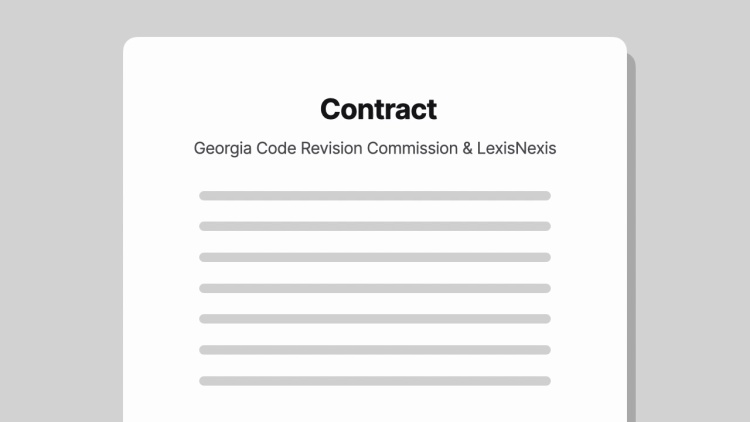Georgia v. Public.Resource.Org, Inc.
United States Supreme Court
590 U.S. 255 (2020)
- Written by Haley Gintis, JD
Facts
In 1977 the state of Georgia (plaintiff) established the Code Revision Commission (the commission) to create the Official Code of Georgia Annotated (OCGA). The OCGA contained a single code consolidating various Georgia laws. The commission contracted with a private party, LexisNexis Group (Lexis), to create annotations within the OCGA. The annotations constituted further explanations of the statutory provisions, including summaries of related opinions, relevant law-review articles, and the origin of the law. The legislature voted to approve the annotations prior to publishing the OCGA. Although a nonannotated OCGA was available for free online, the legislature had given Lexis permission to sell hard copies of the OCGA with the annotations. The contract between the commission and Lexis provided that copyright to all OCGA material vested in the state. Public.Resource.Org (Public) (defendant), a nonprofit organization, posted a digital version of the OCGA online that included the annotations. The commission sent cease-and-desist letters and then sued Public in federal district court on behalf of the Georgia legislature and the state (collectively, the state) for committing copyright infringement by posting the annotations. The state claimed that the annotations were subject to copyright protections because the annotations did not have the force of law and the Copyright Act listed annotations as work eligible for copyright status. Public filed a counterclaim seeking a declaratory judgment that the annotations were not subject to copyright protection. The district court found that the annotations were subject to copyright protection because the annotations did not have the force of law. The matter was appealed. The court of appeals reversed on the ground that the annotations constituted work authored by the people because the people were constructive authors of the law. The matter was appealed to the United States Supreme Court.
Rule of Law
Issue
Holding and Reasoning (Roberts, C.J.)
Dissent (Thomas, J.)
Dissent (Ginsburg, J.)
What to do next…
Here's why 905,000 law students have relied on our case briefs:
- Written by law professors and practitioners, not other law students. 47,100 briefs, keyed to 995 casebooks. Top-notch customer support.
- The right amount of information, includes the facts, issues, rule of law, holding and reasoning, and any concurrences and dissents.
- Access in your classes, works on your mobile and tablet. Massive library of related video lessons and high quality multiple-choice questions.
- Easy to use, uniform format for every case brief. Written in plain English, not in legalese. Our briefs summarize and simplify; they don’t just repeat the court’s language.





